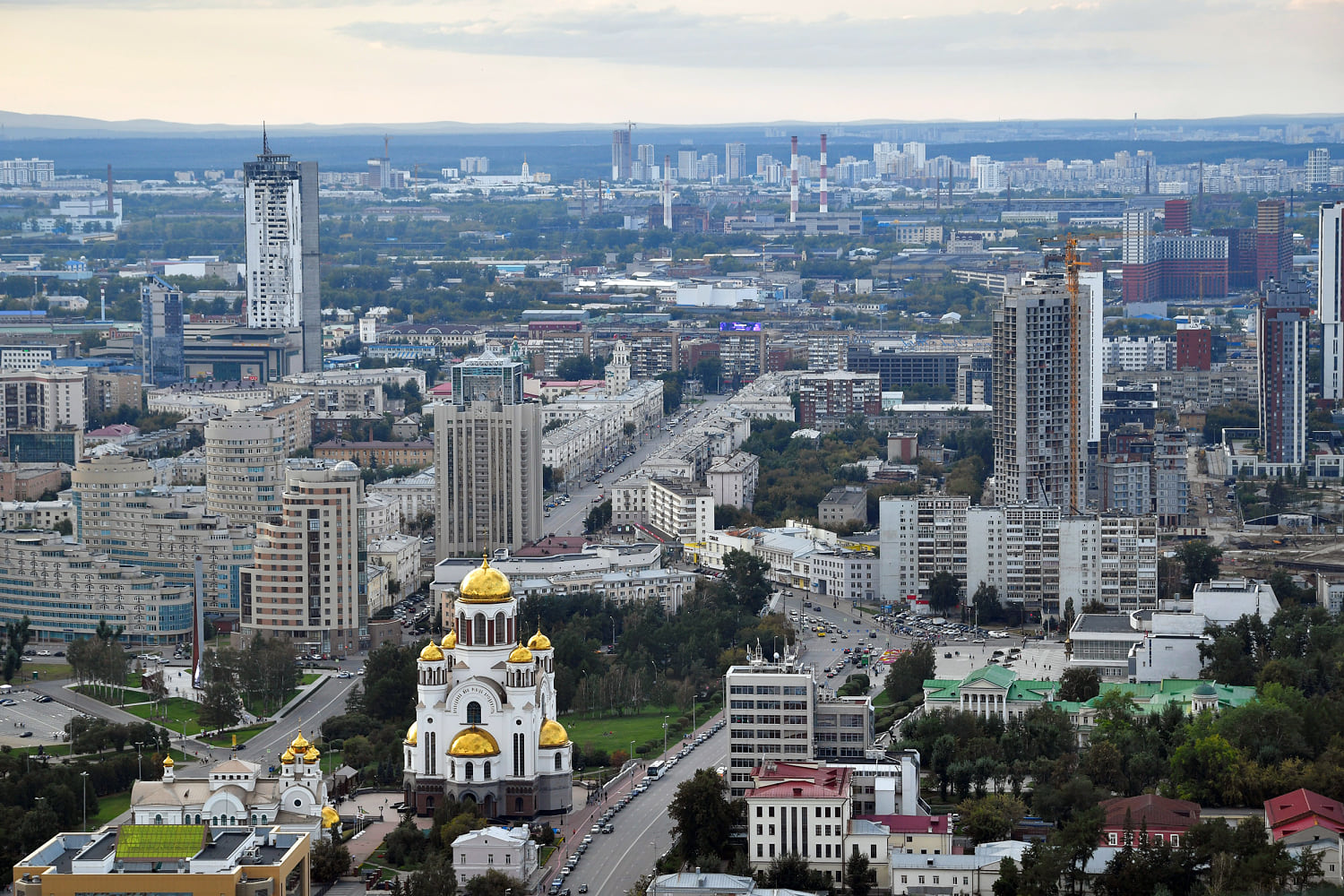[ad_1]

Russian police raided another gay bar over the weekend, video posted by a Russian media outlet showed, less than two weeks after the country’s highest court designated LGBTQ activists as extremists.
The video, shared Saturday by local news outlet Ura.ru, appears to show riot officers entering a darkly lit bar or club and then abruptly cutting the music and turning the lights on. The officers can be heard yelling, and then about a dozen or so patrons and bar staff can be seen filing out of the venue. The video was taken inside Fame, a gay bar in Russia’s fourth largest city, Yekaterinburg, according to the news outlet. Ura.ru, which is also based in Yekaterinburg, had historically been critical of the Russian government, but the outlet has more recently been described as “Kremlin-friendly.”
Gay bars in Moscow were similarly raided by Russian police the previous weekend. Clubgoers’ identification documents were reportedly checked and photographed by police.
A representative from the Russian Embassy in Washington, D.C., did not immediately return a request for comment.
The raids are part of a decadeslong crackdown on LGBTQ rights in the nation under the leadership of President Vladimir Putin, who has been in power for almost a quarter century. They also come less than two weeks after the ruling by the nation’s Supreme Court that designated gay and trans activists and the LGBTQ “movement” as extremists.
Under Russian law, those found guilty of participating or financing extremism can be sentenced to up to 12 years in prison, according to the international advocacy group Human Rights Watch. The ruling is seen by critics as effectively banning any form of organized advocacy on behalf of LGBTQ rights.
“It’s a bleak, bleak part of history for Russian LGBTQ society, unfortunately,” said Renat Davletgildeev, an LGBTQ activist and journalist who fled Russia last year. “And we are only on the first step on the way to hell.”
A ban on consensual same-sex intimacy was outlawed in Russia after the fall of the Soviet Union in 1991. But in more recent years, the Russian government has passed a series of laws restricting LGBTQ rights.
In 2013, the Russian government passed legislation that has become known worldwide as the nation’s “gay propaganda law,” making it illegal “to spread information about nontraditional sexual behavior” to minors.
Police detained more than 100 gay and bisexual men in Chechnya, a republic of Russia, and subjected them to torture in 2017, according to human rights groups. The Russian and Chechen governments have both maintained that the persecution never took place.
As part of a referendum to allow Putin to stay in power until 2036 if he chooses to, Russians in 2020 voted in favor of a constitutional amendment that defines marriage as exclusively between a man and a woman.
Last year, Russian lawmakers expanded the “gay propaganda law” to apply to adults, effectively banning public symbols or gestures of “nontraditional sexual relations.” Those found to be in violation of the law could face up to 400,000 roubles ($6,500) in fines. A Russian court also disbanded the nation’s largest LGBTQ advocacy group, the Russian LGBT Network, last year.
In July, Putin signed a measure into law that would ban gender-affirming care in Russia.
While acknowledging the deterioration of LGBTQ rights in Russia, Tanya Lokshina, an associate director at Human Rights Watch, described the police raids on gay bars as “particularly extreme.”
“They’re not going to go after each and every LGBT person who exhibits their sexual orientation,” she explained in an interview with NBC News last week. “But, they’re going to go after some people — which will make it clear to everyone else — that you have to shut up or else because that’s the way the Russian government operates.”
Critics of the recent Supreme Court ruling said they were not surprised by its timing, arguing that it is aimed at further vilifying LGBTQ people ahead of the upcoming presidential elections in March. Putin announced his candidacy for the election he is all but certain to win last week.
“They need to feed this idea of the country surrounded by enemies who want to destroy us,” Maria Alyokhina, a member of Russia’s activist punk rock group Pussy Riot, said in a reference to the Kremlin.
Alyokhina, who is queer and has been arrested for her activism several times, escaped Russia last year disguised as a food delivery person in order to slip past a police guard while she was under house arrest. She said the recent Supreme Court ruling will force LGBTQ Russians to go further into hiding.
“In Russia, there is a dark joke that there is no level of bottom,” she said. “So, it definitely can be worse, and with this terrible law it would be worse.”
[ad_2]
Source link
